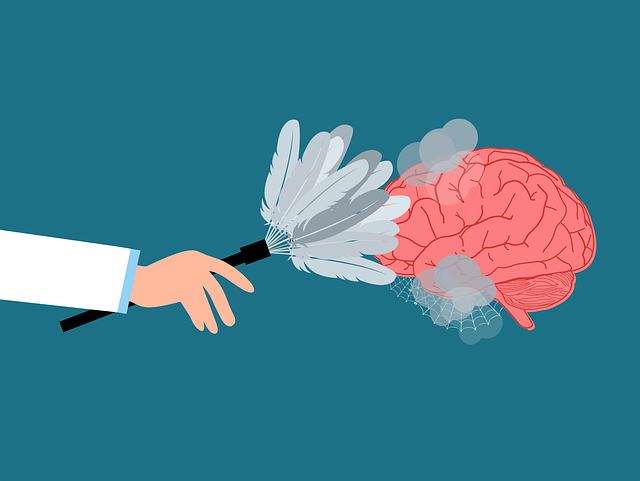Mental health professionals offering Lone Tree Mandarin Chinese Speaking Therapy in remote areas face challenges including access limitations, cultural differences, and language barriers. To overcome these obstacles, they implement strategies like Community Outreach and Self-Awareness Exercises, focusing on depression prevention in isolated, underserved populations. Tailored communication protocols, cultural sensitivity, and interpretive services ensure client safety. Regular training in trauma-informed care and peer support networks build resilience, fostering an inclusive environment that prioritizes the emotional well-being of both therapists and clients.
Mental health professionals facing unique challenges in providing services to Mandarin-speaking individuals in remote areas, such as Lone Tree. This article explores comprehensive risk assessment strategies tailored to this specific context. We delve into cultural and language barriers that can exacerbate vulnerabilities, offering insights for mitigating risks in lone tree Mandarin Chinese speaking therapy practices. Additionally, it highlights the importance of continuous professional development and resilience-building through dynamic risk assessment for optimal patient care.
- Understanding Unique Risks for Mandarin-Speaking Therapy in Remote Areas
- Assessing Vulnerabilities: Cultural and Language Barriers
- Strategies for Mitigating Risks Specific to Lone Tree Mandarin Chinese Speaking Therapy Practices
- Building Resilience: Continuous Risk Assessment and Professional Development for Mental Health Professionals
Understanding Unique Risks for Mandarin-Speaking Therapy in Remote Areas

Mental health professionals who offer Lone Tree Mandarin Chinese Speaking Therapy in remote areas face unique challenges. The isolation and cultural differences inherent in these regions significantly impact service delivery. For example, access to resources and support networks is often limited, with long distances hampering quick referrals or emergency interventions.
Moreover, providing therapy in a language other than one’s own requires specialized skills and knowledge. Mandarin-speaking therapists must be proficient not only in their mother tongue but also in the nuances of cultural expression and communication styles within the Chinese community. Implementing Community Outreach Program Implementation strategies can enhance access to mental health services for these underserved populations, while incorporating Self-Awareness Exercises tailored to address cultural barriers can foster effective therapy. Proactive measures to prevent Depression Prevention among remote communities are also crucial, considering the heightened risk factors associated with isolation and limited support systems.
Assessing Vulnerabilities: Cultural and Language Barriers

Mental health professionals must be adept at navigating cultural and language barriers when assessing vulnerabilities among their clients. In a diverse society like ours, where individuals from various ethnic backgrounds and linguistic groups seek therapy, it’s crucial to recognize and address these barriers effectively. For instance, consider a Lone Tree Mandarin Chinese speaking therapy client who may face challenges in expressing their feelings due to cultural nuances or a language difference.
Understanding cultural context is vital; certain emotions or experiences might be expressed differently across cultures. Mental health professionals should employ culturally sensitive approaches, such as incorporating self-care practices tailored to the client’s background and utilizing stress reduction methods that resonate with their beliefs. Enhancing mental health awareness involves creating an inclusive environment where clients feel comfortable discussing their struggles openly, regardless of their linguistic or cultural backgrounds.
Strategies for Mitigating Risks Specific to Lone Tree Mandarin Chinese Speaking Therapy Practices

Lone Tree Mandarin Chinese Speaking Therapy practices face unique challenges due to their specialized nature and language barriers. To mitigate risks effectively, therapists should prioritize strategies that foster a safe and supportive environment. This includes implementing clear communication protocols tailored for non-native speakers, ensuring cultural sensitivity, and providing interpretive services when necessary. Regular training on trauma-informed care and crisis management is crucial to handle sensitive cases competently.
Additionally, promoting positive thinking and self-care practices among therapists is essential for their well-being and resilience. Encouraging self-esteem improvement through professional development opportunities and peer support networks can enhance their confidence in serving a diverse clientele. By adopting these measures, Lone Tree Mandarin Chinese Speaking Therapy Practices can not only protect their clients but also maintain a thriving and ethical therapeutic environment.
Building Resilience: Continuous Risk Assessment and Professional Development for Mental Health Professionals

Mental health professionals are continually navigating complex emotional landscapes, making continuous risk assessment and professional development essential components of their practice. Building resilience is key to mitigating potential risks and ensuring optimal patient care. By integrating regular self-reflection and peer support networks, therapists can enhance their ability to manage challenging situations effectively.
At Lone Tree Mandarin Chinese Speaking Therapy, we emphasize the importance of ongoing learning and adaptation. Our professionals engage in regular training sessions focused on emotional well-being promotion techniques and stress reduction methods. This proactive approach equips them with the tools needed to identify potential risks early on and implement effective risk mitigation strategies. Through this commitment to professional development, our team not only improves their clinical skills but also fosters a supportive environment that benefits both therapists and their clients.
Mental health professionals providing Lone Tree Mandarin Chinese Speaking Therapy in remote areas face unique challenges, from cultural and language barriers to feelings of isolation. By understanding these risks, assessing vulnerabilities, and implementing specific mitigation strategies, practitioners can enhance their resilience and deliver more effective care. Continuous risk assessment and professional development are key to navigating the complexities of this specialized practice, ultimately fostering a healthier and more supportive environment for both therapists and their clients.














